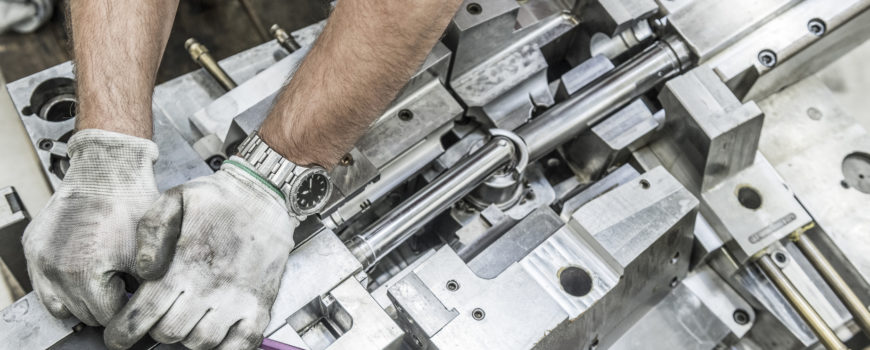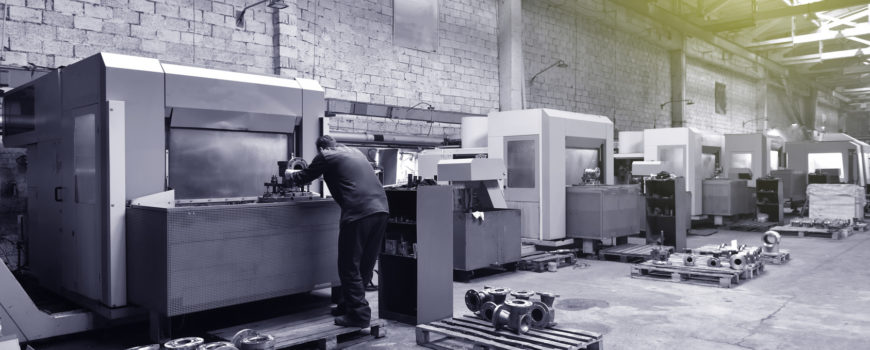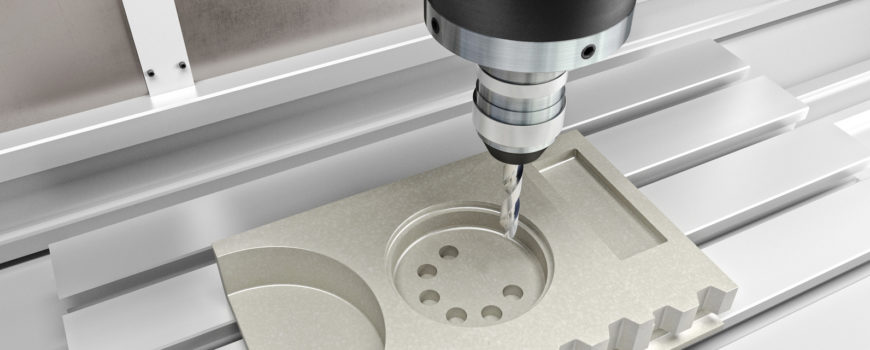Just because the world of manufacturing has changed doesn’t mean that people need to stray from the basics. It is just as important to choose the right tools for the job today as it was hundreds of years ago. In actuality, as technology has advanced, there are more tools at someone’s disposal than ever before. With more choices, it has become harder to select the right tools. Now, there are CNC manufacturing tools available in almost every precision machine shop, leaving people to select which types of tools are most applicable to this advanced technology. What are some of the examples of tools that a CNC machinist might require? How can the right tools be identified?
Starting with Computer-Animated Drawing (CAD) Model Design
The first step in the CNC machining process is the creation of a 2D or 3D model of what is going to be produced. Typically, this is done through computer-animated drawing, or CAD. This is computer programming that plays an essential role in the CNC process. CAD allows manufacturers to put together a picture with the necessary specifications (including dimensions and various geometries) that will allow the product to be completed.
The designs of CNC machined parts are typically restricted by the geometry of the machine process itself. CAD helps manufacturers identify potential problems and limitations of the end product before the process gets underway. In this fashion, CAD saves both time and money in any precision machine shop. By identifying and fixing problems before the first machine is moved, a tremendous amount of stress is saved.
Once the CAD drawing is complete, the file needs to be exported and converted into a format that is compatible with CNC machining. Common formats include STEP and IGES. It is important for manufacturers to take a look at the various software programs that are available for CAD. The more familiar people are with CAD, the more efficient the CNC machining process will be.
Building the CNC Machine: Examples of Possible Tasks
Now that the CAD drawing is complete, the next step is to build the CNC machine. Depending on the actions that must be done to build the final product, this machine can take many forms. Some of the tools that the manufacturer will need to find include machinery spindles, machine vises, drill bits, end mills, lathes and more. These tools then need to be attached correctly for the various steps to be performed. It is important for everyone to identify the various steps that must be completed and build their machine accordingly. Some of the types of CNC operations that might be performed using custom machined parts include:
CNC Drilling: Drilling is a machine process that relies on the use of drill bits with multiple points that will produce holes in the desires workpiece. Using CNC drilling, the machine will feed the rotating drill bit into the perpendicular plane of the workpiece. This produces holes that are aligned in a vertical manner with diameters that match the width of the drill bit. Using advanced CNC machinery, holes can also be drilled at an angular manner. Drill bits can also be used to perform tasks such as reaming, countersinking, and counterboring. If these tasks are required, advanced drill bits might be needed. Manufacturers in a precision machine shop should plan accordingly.
CNC Milling: Another possible CNC task is called milling. In milling, a rotating multipoint cutting tool is used to remove certain amounts of material from the workpiece. The CNC machine will typically feed the workpiece into the cutting tool in the same direction as the tool’s rotation. This produces a smooth surface while simultaneously removing material from the surface of the workpiece. Depending on the program, CNC milling can either be used to cut shallow, flat surfaces with flat-bottomed cavities (called face milling) or to produce deep cavities such as slots and threads (called peripheral milling). Depending on the type of milling that people need to perform, they might prefer one type of equipment over the other.
CNC Turning: CNC turning is another possible task that can be performed by advanced CNC machinery. In CNC turning, the machine (such as a lathe) will feed the cutting tool into the workpiece in a linear fashion. Then, using a single point, the machine will remove material from the circumference of the workpiece. This will be continued until the desired diameter is achieved. Therefore, CNC turning can be used to create cylindrical parts. Advanced CNC turning can also be used to apply advanced internal features to the workpiece. This includes threads, tapers, and slots. If advanced features are needed, the manufacturer may want to investigate advanced CNC turning tools that are capable of doing this.
As a summary, CNC drilling is used to produce cylindrical holes of varying sizes. CNC milling removes material from the workpiece and produces a wider variety of shapes. CNC turning is used to create round or cylindrical parts. All of these require different manufacturing tools that interact with CNC machines in a different way.
A Revolution in US Manufacturing with Prototype Machining from CNC Manufacturing
While these are a few of the most common tasks that can be carried out using CNC tools, there are numerous other examples as well. These include lapping, honing, grinding, broaching, and sawing. These are advanced tasks that can be combined with those above to create additional features in the final product. With the advent of advanced CNC programming, machines in any precision machine shop can be set up to perform multiple tasks at the same time using custom machined parts. This has changed what people expect of their original equipment manufacturer (OEM) because this technology can increase both productivity and accuracy. It is crucial for manufacturers to embrace CNC manufacturing and invest in the proper equipment to ensure these expectations are met.
Choosing the Right Tools: Help from the Experienced Professionals
As the world of Denver manufacturing continues to change, it will only become more important to choose the right tools. The expectations of the consumer are going to change and precision machine shop businesses need to rise to meet them. This means putting CNC manufacturing to work in the right way with the right equipment and the right team. Because of this, anyone who is working in a custom machine shop Denver needs to make sure that they have access to every tool. This is where it is crucial to have a high-quality CNC Machinist available. To learn more about CNC manufacturing and how it can change your Denver manufacturing company, contact Tag Team Manufacturing today. Someone is always available to provide assistance.










